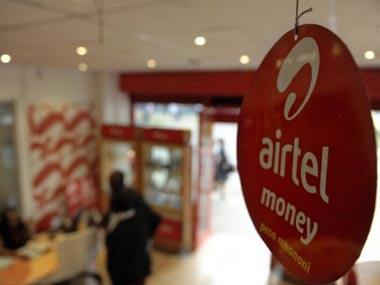Bharti Airtel has moved the Delhi High Court, challenging the show cause notice issued by the Department of Telecom (DoT) on inter circle roaming for 3G services.
The notice, which was received by DoT to Bharti late on Friday, asks the country’s largest mobile phone service provider to stop 3G services in seven circles where it is the ’taker’ which means it does not own 3G spectrum and has been offering these services by entering into roaming pacts with other telcos.
It could not be immediately ascertained whether the 3G services in those circles where Bharti does not directly hold spectrum need to be stopped today or by Wednesday.
[caption id=“attachment_475498” align=“alignleft” width=“380”]  Reuters[/caption]
The notice, sources told Firstpost, seeks to levy total damages of Rs 350 crore (Rs 50 crore per circle) on Bharti. The circles where it has been asked to stop 3G services are Maharashtra, Madhya Pradesh, Kolkata, Uttar Pradesh East, Gujarat, Kerala and Haryana.
Industry sources said similar notices are going out to Vodafone and Idea also by this evening. Through these notices, the DoT has asked telcos to explain why action should not be taken against them for offering 3G services in those circles where they did not bag 3G spectrum.
A 60-day window has been provided to explain why penalties should not be imposed on telcos for having violated their license agreements.
And as we reported earlier, DoT is not only planning to impose a maximum fine of Rs 50 crore per circle but is also seeking fresh legal opinion on what it calls ‘unjust enrichment’.
Impact Shorts
More ShortsPut simply, this means that apart from charging for licence violation, DoT also wants to recover the revenues that telcos have gained by offering inter-circle roaming on 3G services. So, a second show cause notice may well be on its way.
Bharti, Vodafone, Idea and Aircel had won 3G airwaves in 13, 9, 11 and 13 circles, respectively and their roaming pacts ensured that customers could access high-speed data services on a pan-India basis. There is no clarity yet on whether Tata Teleservices would also be issued a notice by DoT.
Earlier this year, the Telecom Dispute Settlement Appellate Tribunal (TDSAT) gave a split verdict on a petition filed by telcos, challenging an order by the DoT to stop such roaming pacts. No wonder then that Bharti has gone to court on the first working day after the notice was received.
While TDSAT Chairman SB Sinha allowed petitions by Bharti Airtel, Vodafone, Idea Cellular, Aircel and Tata Teleservices challenging the DoT order, he also made it clear that the DoT needs to study licence conditions of each operator before deciding if there has been any violation when these telcos entered into pacts with each other to offer 3G services.
But TDSAT member PK Rastogi said since each petitioner (telco) does not have 3G licence in some circles, they cannot provide 3G services in these circles by making an intra-circle arrangement.
In his order, Judge Sinha made it clear that in its recommendations on the subject, sector regulator Trai “did not positively say that the ICR agreements entered into by the petitioners were violative of the terms and conditions of the licence.
It has assigned several reasons suggesting that the licensees should not be allowed to continue to do so as, by reason thereof inter-alia the Central Government, would lose a lot of revenue. But then, as noticed heretobefore, its views were prima-facie in nature. The same were to be accepted by the DoT.”
He said DoT should consider the terms and conditions of each ICR agreement separately “so that the terms and conditions contained therein may be analysed and the decisions therefore are rendered thereafter.”
The government had raised over $12 billion from 3G auctions in 2010. But no company managed to win airwaves in all of the country’s 22 service zones as the bid prices were much higher than expected-this is what led to ICR pacts.


)

)
)
)
)
)
)
)
)



